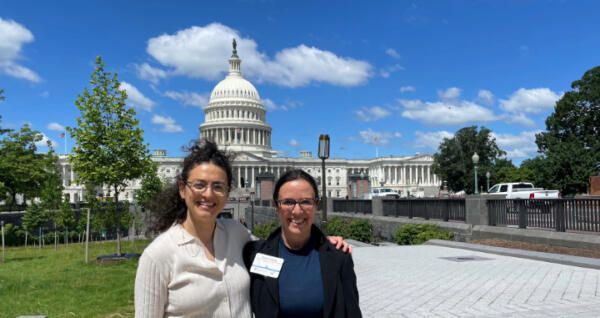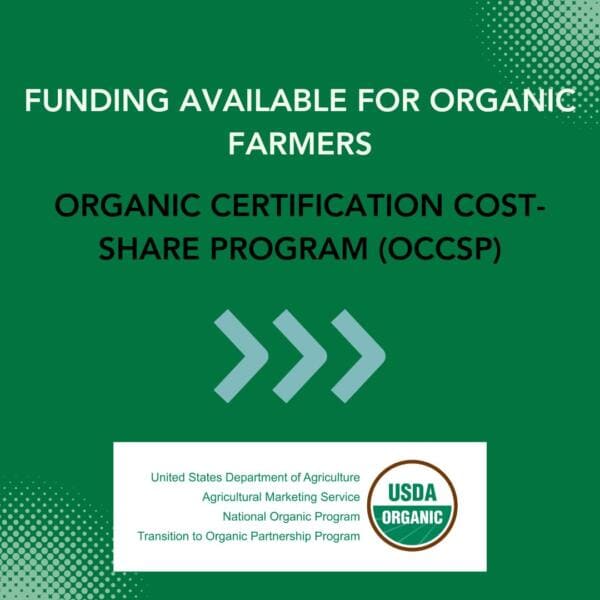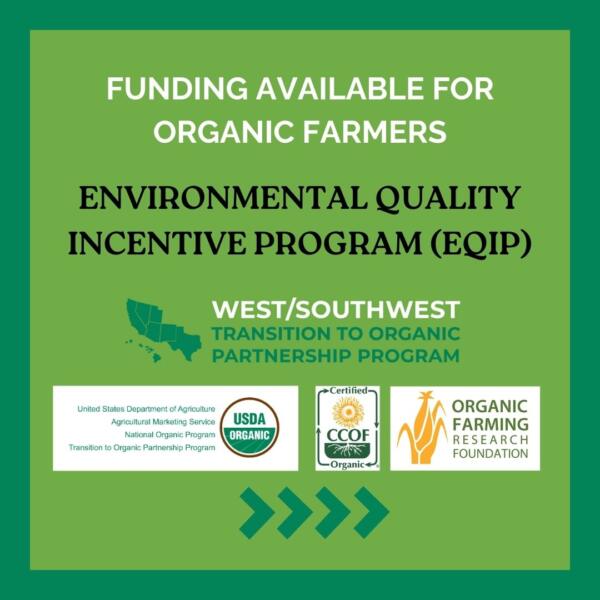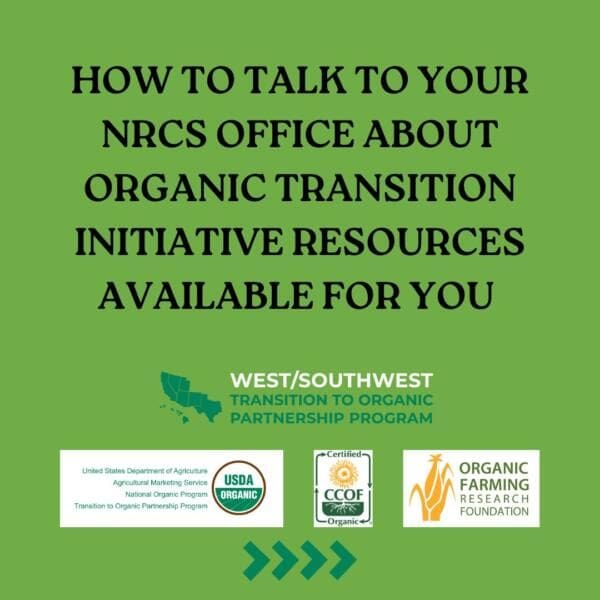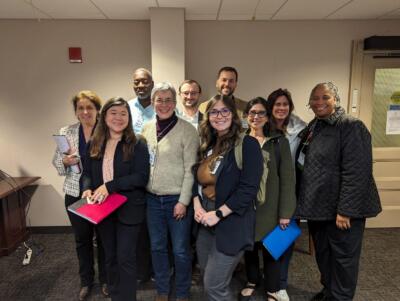From Classrooms to Congress
An Intern’s Journey into Food and Agricultural Policy with OFRF
By Julia Nelson, Summer 2024 Policy & Advocacy Intern
After spending a chunk of my first year of graduate school learning about food and agricultural policy in the U.S., I began my internship at OFRF with the goal of understanding how those policy mechanisms play out in the real world for the different parties involved in the process. Over the past 12 weeks, I have welcomed the opportunity to contribute to OFRF’s advocacy work focused on increasing funding for organic research in the most important U.S. agricultural policies – the agricultural appropriations and the Farm Bill. Through this experience, I have had the chance to practice a range of policy skills such as: writing catchy and persuasive email campaigns, synthesizing complicated federal data into a leave-behind document that tells a compelling story, and engaging in conversations with coalitions and members of Congress.

One major goal of this work is to spread awareness to Senators and Representatives on the various agricultural committees that funding organic agricultural research doesn’t just support the scientific community, but also contributes to the local economy and helps the country move closer to climate goals. Through this process, I have also been able to experience firsthand the nuts and bolts of the federal policymaking process and better understand how major political events (such as a looming presidential election) affect the pace of advocacy work.
Another hope of mine for this internship was to develop my professional skills in a way that would prepare me for future roles at nonprofit organizations or in public service. Because of its importance in the nonprofit world, I was interested in learning more about development and funding during my time at OFRF. I had the opportunity to help the Development team with prospect research, which meant I spent time researching and identifying foundations that were and were not a good fit for our needs. I enjoyed getting a sense of the funding landscape for organizations who work on organic agriculture and hope to continue working with grants in some capacity in my future career.
Additionally, I had the opportunity to put the data management and analysis skills that I have acquired through various statistics and economics classes to work. I helped with a few different data projects for the Policy team and the Research & Education (R&E) team, cleaning and categorizing large amounts of data on organic research from USDA and universities. The goal of my project for the Policy team was to be able to provide an honest estimate of the amount of federal funding that has gone towards organic agricultural research. The purpose of my work for R&E was to help populate OFRF’s soon-to-be organic research hub, which aggregates educational resources on organic agriculture to provide farmers with a one-stop shop of quality information. These projects reminded me of the importance of data in storytelling, illuminated the hard work that goes into any useful website that aggregates different resources, and reminded me that I need to keep up with my Excel skills.
Finally, on a different note, I appreciated being able to gain insight into how a remote, national organization operates and builds community. As I gear up for entering a workforce that is becoming increasingly virtual, it’s been helpful to see positive examples of how you can connect and develop relationships with coworkers without being face-to-face. I have really enjoyed the catch-ups that happen during staff meetings and our informal community-building Zoom calls.
Looking into the future, this experience has cemented my interest in pursuing the ‘policy’ part of my MS degree in Food and Nutrition Science & Policy after I graduate. My time with OFRF has reinforced my passion for working at the intersection of climate and food systems. As I begin the final year of my graduate program, I will be focusing my time on gaining the policy & organizational leadership skills I need to pursue a career at a government agency or nonprofit organization based in my home area of New England. I could not be more grateful to OFRF for providing me with an enriching internship experience, and also for the support and inclusivity of all of the team members I collaborated with throughout the summer.



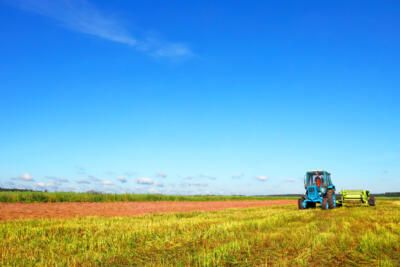
 Agricultural research is an incredibly valuable investment. Studies have shown that
Agricultural research is an incredibly valuable investment. Studies have shown that 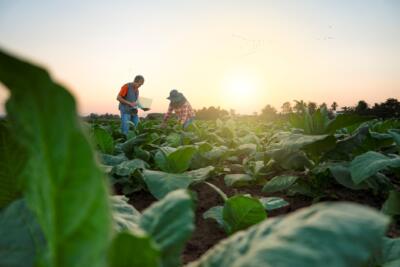 Despite the broad benefits of organic agriculture research, it receives disproportionately low funding. Currently, less than 2% of the USDA’s research budget is allocated to organic topics, and less than 1% of the Agricultural Research Service’s (ARS) budget is dedicated to organic research. This significant underfunding limits the potential for organic farming practices to be fully explored, developed, and disseminated and likely undermines the effectiveness of conservation and climate programs.
Despite the broad benefits of organic agriculture research, it receives disproportionately low funding. Currently, less than 2% of the USDA’s research budget is allocated to organic topics, and less than 1% of the Agricultural Research Service’s (ARS) budget is dedicated to organic research. This significant underfunding limits the potential for organic farming practices to be fully explored, developed, and disseminated and likely undermines the effectiveness of conservation and climate programs.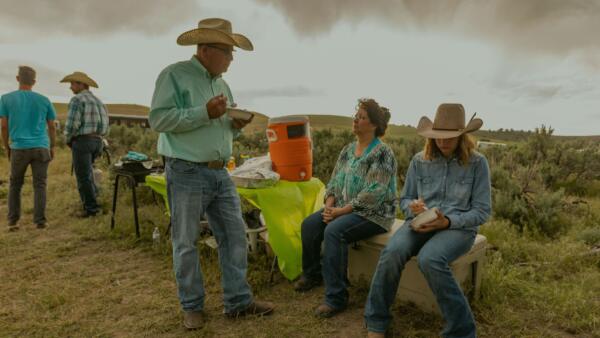 At OFRF, we are acting on that intention. We don’t just believe collaboration is the cornerstone of progress; we are actively building the foundation for it. By creating structured space and time for researchers and extension professionals within an ecoregion, we can enhance the impact of our own work and that of those researchers and extension officials. We are proud to be involved in the Transition to Organic Partnership Program for the Western and Southwestern States (TOPP-W/SW). Through this involvement, we have embarked on an initiative that brings these intentions to fruition.
At OFRF, we are acting on that intention. We don’t just believe collaboration is the cornerstone of progress; we are actively building the foundation for it. By creating structured space and time for researchers and extension professionals within an ecoregion, we can enhance the impact of our own work and that of those researchers and extension officials. We are proud to be involved in the Transition to Organic Partnership Program for the Western and Southwestern States (TOPP-W/SW). Through this involvement, we have embarked on an initiative that brings these intentions to fruition.